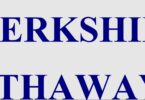What is a credit card?
(a) A prepaid card with a fixed spending limit
(b) A card issued by a financial institution that allows users to borrow money to make purchases
What is the term for the practice of offering credit cards to high-risk individuals with poor credit without fully disclosing terms and fees?
(a) Responsible lending
(b) Prime lending
(c) Transparent lending
(d) Subprime lending
What was the original purpose behind introducing credit cards?
(a) To replace cash transactions entirely
(b) To provide convenient access to short-term credit for purchases
Which practice was a major controversy associated with credit companies and banks in the past?
(a) Offering generous rewards to cardholders
(b) Implementing unfair and hidden fees
(c) Lowering interest rates to attract customers
What is the key difference between a credit card and a debit card?
(a) A credit card has no spending limit
(b) A debit card requires a PIN to make purchases
(c) A credit card is linked to a line of credit, while a debit card is linked to a bank account.
Which feature is often associated with premium or top-tier credit cards?
(a) No annual fees
(b) Low credit limits
(c) acceptance at selected merchants
(d) Exclusive rewards and benefits
How does credit card interest accrue on unpaid balances?
(a) Interest is only charged on the original purchase amount.
(b) Interest is added only if the cardholder exceeds the credit limit.
(c) Interest is calculated on the total unpaid balance.
What is the annual percentage rate?
(a) The number of rewards points earned per dollar spent
(b) The fee charged for obtaining a credit card
(c) interest rate applied to outstanding balances
What is a common drawback of credit cards with high annual fees?
(a) The annual fee can outweigh the benefits, especially for light spenders.
(b) They offer unlimited cashback rewards.
How can a cardholder avoid paying interest?
(a) By transferring the balance to another card.
(b) By making payments on or before the due date in full, eliminating the unpaid balance.
When was the first credit card introduced?
(a) 1950s
(b) 1930s
(c) 1960s
(d) 1980s
Which law provides protection for consumers in cases of billing errors or unauthorized charges?
(a) ICBA
(b) FFCA
(c) FCBA
(d) CCBL
Related: quantitative methods for economic analysis questions
Which company was founded in 1950 and is known for its iconic “Don’t leave home without it” slogan?
(a) American Express
(b) Visa
(c) MasterCard
(d) Discover
What is the credit limit?
(a) The maximum number of transactions allowed per month
(b) The maximum amount of money that the cardholder is allowed to borrow and spend on the card
(c) The total amount of money the cardholder owes to the bank
The concept of using a credit card was initially developed for what purpose?
(a) Online shopping
(b) Travel bookings
(c) Consumer loans
(d) Emergency payments
Which company’s logo features overlapping circles representing cooperation between member banks?
(a) American Express
(b) MasterCard
(c) Visa
(d) Capital One
Related: questions about supply and demand
What is the typical process for canceling a credit card?
(a) Simply stop using the card, and it will automatically be canceled.
(b) Call/Email the card company’s customer service and request cancelation.
(c) Wait for the annual fee to be charged, and the card will be canceled automatically.
(d) Transfer the balance to another card to initiate the cancelation process.
What was the name of the first widely accepted credit card?
(a) Visa
(b) American Express
(c) MasterCard
(d) Diners Club
Related: international financial management mcq
What is a common characteristic of companies like Visa, MasterCard, and American Express?
(a) They primarily focus on offering store-specific credit cards
(b) They act as payment networks, partnering with banks to issue credit cards
(c) They are exclusively available to a specific industry.
What is the primary purpose of the CVV (Card Verification Value)?
(a) It verifies the card’s authenticity during online or phone transactions.
(b) It ensures the card has sufficient funds for a transaction.
(c) It indicates the card’s expiration date.
What is the basic mechanism of how a credit card works?
(a) It provides instant access to unlimited funds for purchases.
(b) It deducts the purchase amount directly from the cardholder’s bank account.
(c) It requires the cardholder to pre-load funds onto the card before use.
(d) It allows the cardholder to borrow money from the issuing bank to make purchases.
How is the credit limit determined?
(a) It is based solely on the cardholder’s annual income.
(b) It is set at a fixed amount for all cards.
(c) It is automatically increased every year.
(d) It is determined by the cardholder’s creditworthiness, income, and other factors.
Related: mcq on buyback of shares
In what year was the first magnetic stripe card introduced?
(a) 1960
(b) 1950
(c) 1970
(d) 1980
What happens when a credit card transaction is made?
(a) The issuing bank pays the merchant on behalf of the cardholder, and the cardholder becomes indebted to the bank.
(b) The cardholder’s bank account is instantly charged for the purchase.
What is an annual fee?
(a) A fee charged for each transaction made in a year.
(b) A fee paid by merchants for accepting credit card payments.
(c) A fee that credit card holders receive annually as a reward.
(d) A recurring fee charged by the credit card company for using the card.
Expan PIN?
(a) Payment identification number
(b) Personal identification number
(c) Personal identification notifiation






